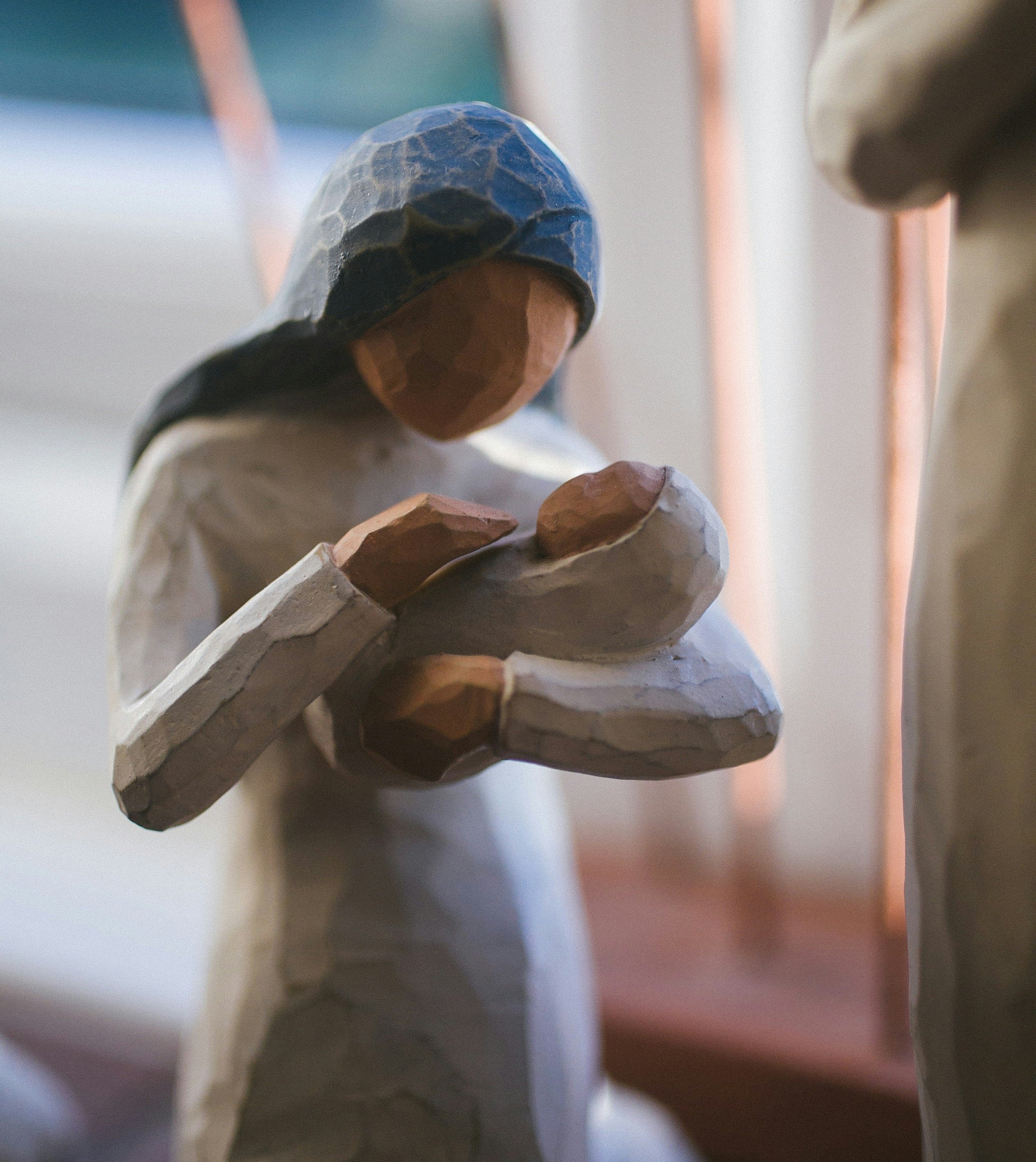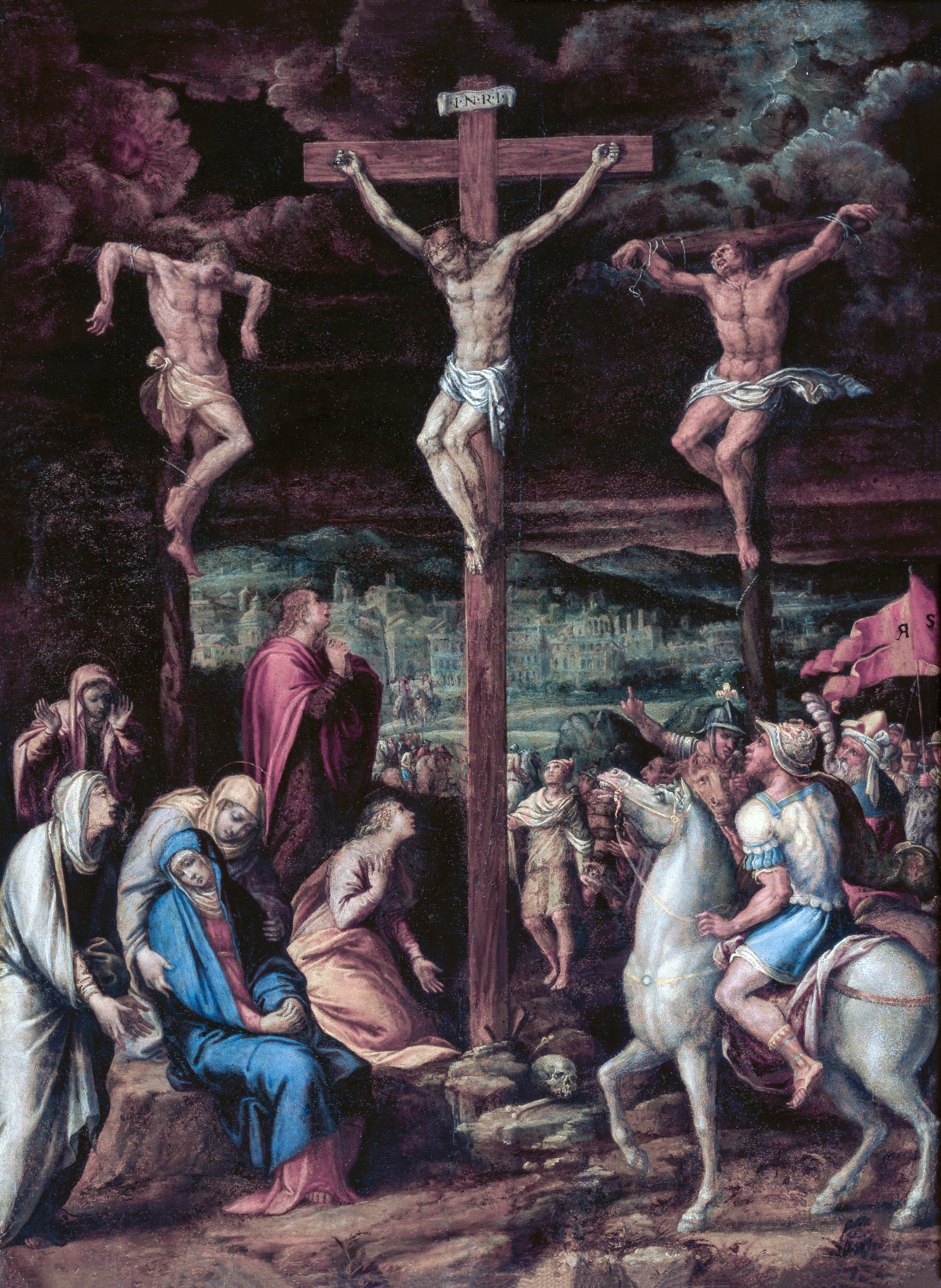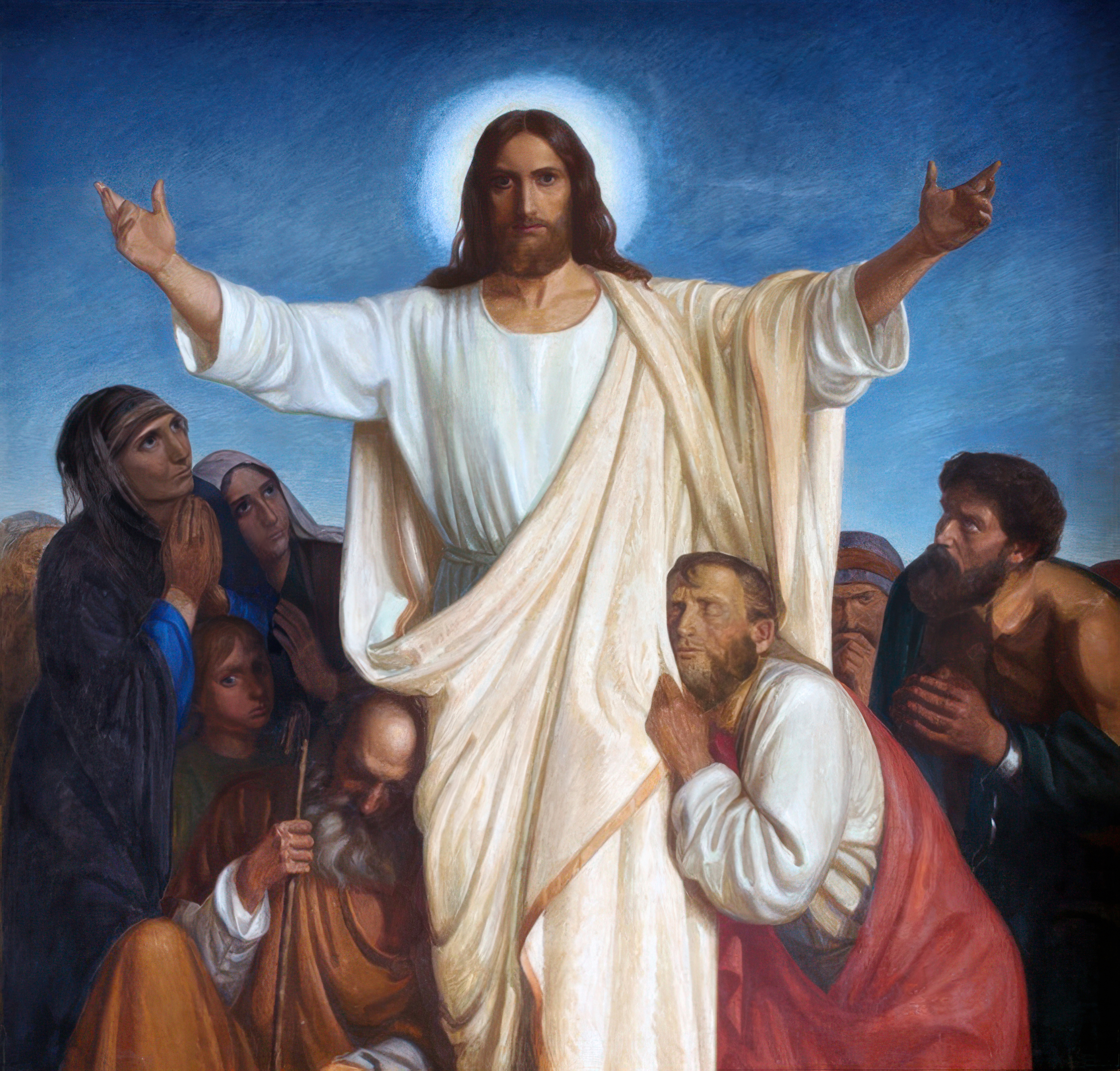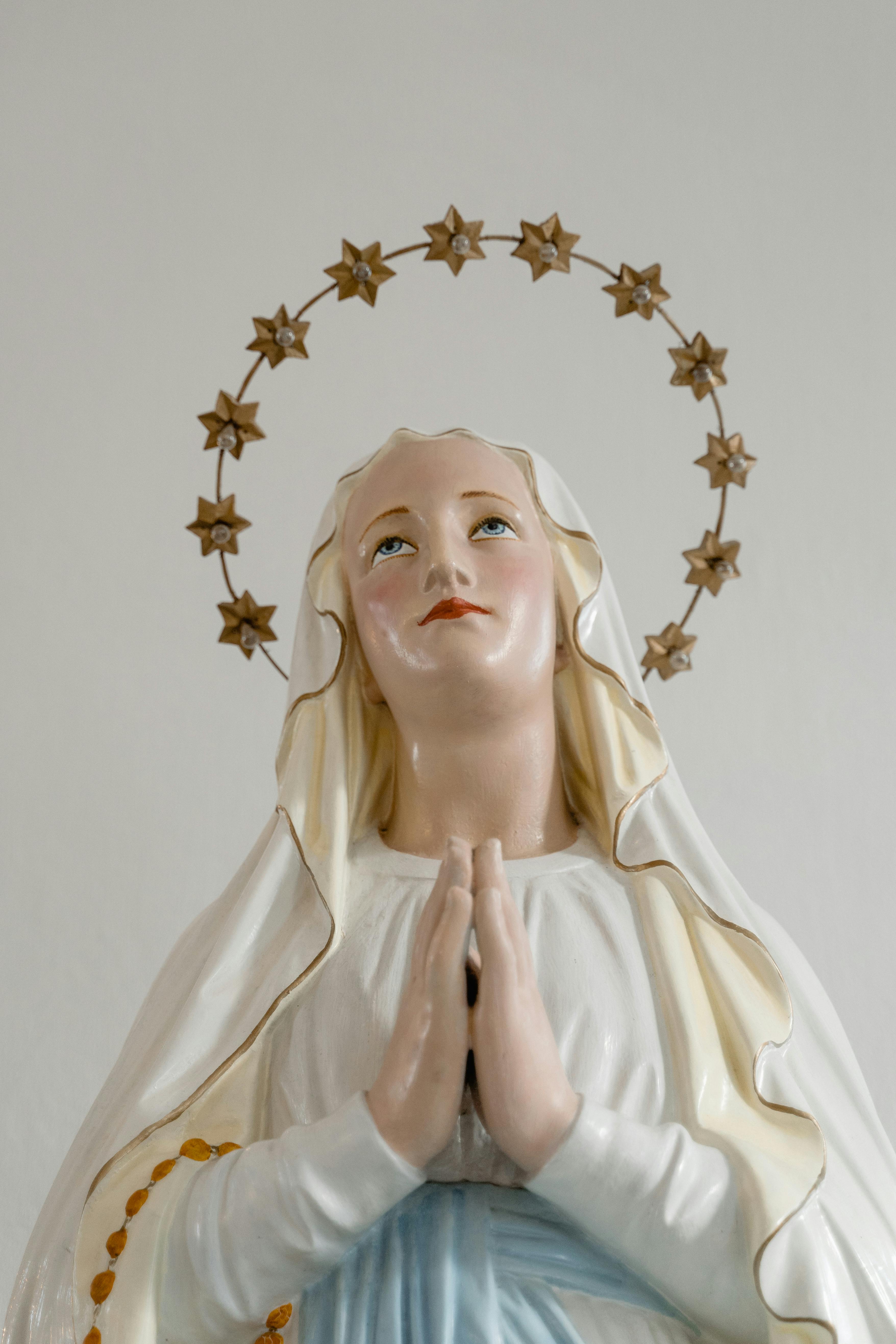O Jesus, meek and humble of heart, Hear me. From the desire of being esteemed, Deliver me, Jesus.
Thus starts the Litany of Humility, attributed to an unknown Roman Catholic clergyman. With a subject such as humility, the author, of course, is not as important as the prayer’s requests themselves. And what a collection of requests it is! We ask for delivery from the desire of being honored, praised, consulted or approved; delivery from the fear of being humiliated, forgotten or ridiculed; grace to want others to be chosen, praised or preferred. The kicker is the final line of the prayer: “That others may become holier than I, provided that I may become as holy as I should, Jesus, grant me the grace to desire it.”
Simon the Pharisee in today’s Gospel from Luke probably could benefit from such a prayerful plea. When Jesus is kind and accepting of the sinful, sorrowful woman bathing his feet with her tears, Simon thinks in terms of condescension. Jesus recognizes this and lets Simon know that the forgiveness of sins is not a contest. God wants to forgive all sins, no matter how bad they might be. We, the sinners, however, have to be sorry for them and want them to be forgiven. God will not force forgiveness upon those who don’t seek it. Jesus reminds Simon that those with great sin will have even greater joy from forgiveness, and at no point should there be jealousy about it.
Realization of sin, great sorrow because of that sin, and firm desire to repent and leave that sin behind all grows from a place of humility. Perhaps we could ask ourselves the question, “Who do I think I am?” An honest answer would be — a sinner, a person who has failed to love, a person who has failed to serve others, a person who has put self ahead of God and other people — is a step in the right direction toward humility, repentance and ultimately forgiveness. We must never forget the power of the Sacrament of Reconciliation. God is waiting for us there. What are we waiting for?
Jesus, grant that I may become as holy as I should, and may that be enough for me.
Oh Jesús, manso y humilde de corazón, escúchame. Del deseo de ser estimado, líbrame, Jesús.
Así comienza la Letanía de la Humildad, atribuida a un clérigo católico romano desconocido. En un tema como la humildad, el autor, por supuesto, no es tan importante como las peticiones de la oración, y ¡qué colección de peticiones es! Pedimos liberación del deseo de ser honrado, alabado, consultado o aprobado; liberación del miedo a ser humillado, olvidado o ridiculizado; gracia para desear que otros sean elegidos, alabados o preferidos. El broche de oro es la última línea de la oración: “Que otros lleguen a ser más santos que yo, con tal de que yo llegue a ser tan santo como debiera, Jesús, concédeme la gracia de desearlo”.
Simón el fariseo, en el Evangelio de hoy según san Lucas, probablemente podría beneficiarse de una súplica tan efusiva. Cuando Jesús se muestra bondadoso y tolerante con la mujer pecadora y afligida que le lava los pies con lágrimas, Simón piensa en términos de condescendencia. Jesús reconoce esto y le hace saber que el perdón de los pecados no es una competencia. Dios quiere perdonar todos los pecados, sin importar cuán graves sean. Nosotros, los pecadores, sin embargo, debemos sentir pena por ellos y desear su perdón. Dios no impondrá el perdón a quienes no lo buscan. Jesús le recuerda a Simón que los que han cometido grandes pecados tendrán un gozo aún mayor por el perdón, y en ningún momento se debe sentir envidia por ello.
La comprensión del pecado, el profundo dolor por él y el firme deseo de arrepentirse y dejarlo atrás surgen de la humildad. Quizás podríamos preguntarnos: “¿Quién me creo ser?” Una respuesta honesta sería—un pecador, una persona que no ha amado, una persona que no ha servido a los demás, una persona que se ha puesto a sí misma por encima de Dios y de los demás—es un paso en la dirección correcta hacia la humildad, el arrepentimiento y, en última instancia, el perdón. Nunca debemos olvidar el poder del Sacramento de la Reconciliación. Dios nos espera allí. ¿Para qué esperamos?
Jesús, ayúdame a llegar a ser tan santo como debo, y que eso me baste.
 Mike Karpus is a regular guy. He grew up in Michigan’s Upper Peninsula, graduated from Michigan State University and works as an editor. He is married to a Catholic school principal, raised two daughters who became Catholic school teachers at points in their careers, and now relishes his two grandchildren, including the older one who is fascinated with learning about his faith. He also has served on a Catholic school board, a pastoral council and a parish stewardship committee. He currently is a lector at Mass, a Knight of Columbus, Adult Faith Formation Committee member and a board member of the local Habitat for Humanity organization. But mostly he’s a regular guy.
Mike Karpus is a regular guy. He grew up in Michigan’s Upper Peninsula, graduated from Michigan State University and works as an editor. He is married to a Catholic school principal, raised two daughters who became Catholic school teachers at points in their careers, and now relishes his two grandchildren, including the older one who is fascinated with learning about his faith. He also has served on a Catholic school board, a pastoral council and a parish stewardship committee. He currently is a lector at Mass, a Knight of Columbus, Adult Faith Formation Committee member and a board member of the local Habitat for Humanity organization. But mostly he’s a regular guy.
Feature Image Credit: cottonbro studio, pexels.com/photo/woman-leaning-on-a-bench-6284260/
The views and opinions expressed in the Inspiration Daily blog are solely those of the original authors and contributors. These views and opinions do not necessarily represent those of Diocesan, the Diocesan staff, or other contributors to this blog.


 Felix Urcia was born in Lima, Peru. He moved the U.S. to complete his college degree in Computer Science at Northern Kentucky University. He is passionate about his faith, his family, education and soccer. When he is not homeschooling and caring for his young children he enjoys personal programing projects and sports analysis. He and wife live in a small town in Western Michigan where they enjoy spending time with their five children.
Felix Urcia was born in Lima, Peru. He moved the U.S. to complete his college degree in Computer Science at Northern Kentucky University. He is passionate about his faith, his family, education and soccer. When he is not homeschooling and caring for his young children he enjoys personal programing projects and sports analysis. He and wife live in a small town in Western Michigan where they enjoy spending time with their five children.
 Hailing from Nashville, Catherine is a graduate of Christendom College with a lifelong passion for words. Her love of writing and her Catholic Faith continue to shape her as a freelance editor, copywriter, and (aspiring) novelist, where she pursues her passions for the love and greater glory of God.
Hailing from Nashville, Catherine is a graduate of Christendom College with a lifelong passion for words. Her love of writing and her Catholic Faith continue to shape her as a freelance editor, copywriter, and (aspiring) novelist, where she pursues her passions for the love and greater glory of God.
 Dr. Alexis Dallara-Marsh is a board-certified neurologist who practices in Bergen County, NJ. She is a wife to her best friend, Akeem, and a mother of four little ones on Earth and two others in heaven above.
Dr. Alexis Dallara-Marsh is a board-certified neurologist who practices in Bergen County, NJ. She is a wife to her best friend, Akeem, and a mother of four little ones on Earth and two others in heaven above.
 Nicole Berlucchi is a faith and family blogger (
Nicole Berlucchi is a faith and family blogger (
 Colleen Orchanian is a podcaster, blogger, and spiritual director who desires to help others have a more profound encounter with God. She is the author of three books: Nearer My God to Thee, Times of Grace, and Lingering with God. Her podcast is Food for Thought (Spiritually Speaking). You can learn more at
Colleen Orchanian is a podcaster, blogger, and spiritual director who desires to help others have a more profound encounter with God. She is the author of three books: Nearer My God to Thee, Times of Grace, and Lingering with God. Her podcast is Food for Thought (Spiritually Speaking). You can learn more at 
 Lily is a Michigan native and cradle Catholic who has spent most of her life exploring her own reasons to embrace her faith fully. She attended Franciscan University of Steubenville, where she discovered the beauty of her personal relationship with Christ and the Church. After college, she worked in Montessori Education for three years and recently transitioned to nannying. She was recently married and spends most of her time reading, and enjoying her dog and family!
Lily is a Michigan native and cradle Catholic who has spent most of her life exploring her own reasons to embrace her faith fully. She attended Franciscan University of Steubenville, where she discovered the beauty of her personal relationship with Christ and the Church. After college, she worked in Montessori Education for three years and recently transitioned to nannying. She was recently married and spends most of her time reading, and enjoying her dog and family!
 Ben Hooper is originally from Maryland, having been adopted from Korea and growing up in the Catholic faith. He went to Franciscan University to dive deeper into his faith and eventually graduated with a degree in Business Management. He loves musical theater, sports, spending time with his wife Lily and their dog Kolbe.
Ben Hooper is originally from Maryland, having been adopted from Korea and growing up in the Catholic faith. He went to Franciscan University to dive deeper into his faith and eventually graduated with a degree in Business Management. He loves musical theater, sports, spending time with his wife Lily and their dog Kolbe.
 Pamela Kavanaugh is a grateful wife, mother, and grandmother who has dedicated her professional life to Catholic education. Though she has done her very best to teach her students well in the subjects of language and religion, she knows that she has learned more than she has taught. She lives, teaches, and writes in southwest suburban Chicago.
Pamela Kavanaugh is a grateful wife, mother, and grandmother who has dedicated her professional life to Catholic education. Though she has done her very best to teach her students well in the subjects of language and religion, she knows that she has learned more than she has taught. She lives, teaches, and writes in southwest suburban Chicago.


 Allison Gingras (
Allison Gingras (
